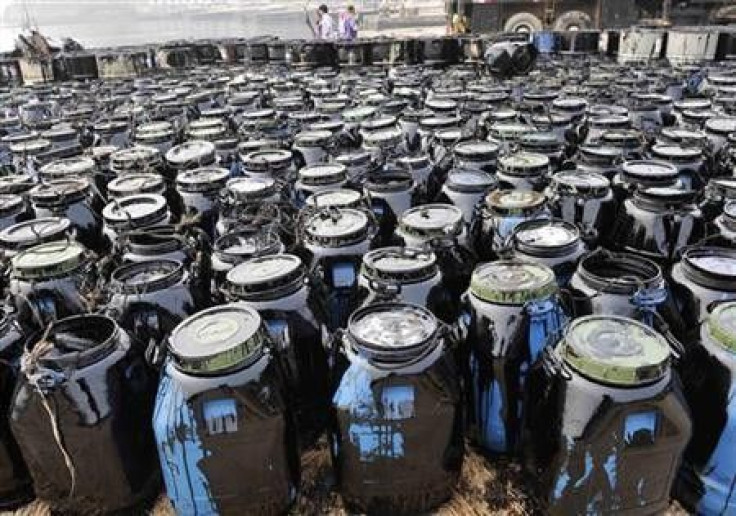Iran 'Will Not Wait For America's Permission' To Boost Oil Exports: Iranian Oil Minister

Iran plans to boost its crude production and exports this year despite agreeing to U.S.-led sanctions against the country's energy sector.
"Iran will use every possibility to increase the amount of oil exports and will not wait for America's permission," Iranian oil minister Bijan Zanganeh said Monday, according to Iran's oil ministry news service Shana. "The sanctions do not ban Iran from increasing oil production and we have a big plan for increasing Iran's oil production."
Iran is also planning to increase its gas production, Zanganeh said. Iran has the second-largest proven gas reserves in the world, and the fourth-largest proven oil reserves, according to the U.S. Energy Information Administration.
Iran's oil production has declined in recent years due in part to sanctions, meant to discourage Iran from building up nuclear material that could be used to make weapons. As part of a nuclear agreement with six world powers, Iran agreed in November to export no more than 1 million barrels per day to Turkey, South Korea, China, India, Japan and Taiwan.
In March, Iran increased its crude exports for the fifth month in a row, according to the International Energy Agency (IEA). Iran's crude exports averaged 1.4 million barrels per day in February and 1.26 million barrels per day in January, the IEA reported.
Zanganeh attracted billions of dollars in investment to Iran's oil drilling and exporation during his pervious term, from 1997 to 2005. He returned to his title last fall promising to boost crude production capacity.
"Certainly Iran will increase its oil production capacity in this year and maintain its share in OPEC," he said Monday.
The National Irainian Oil Company annnounced late last week that Iran was currently producing about 2.85 million barrels per day of crude, compared to 3.26 million barrels per day in February and 3.25 million barrels per day in January. Zanganeh hopes to raise production to 4 million barrels per day this year.
"With [removal] of the sanctions, the work will take on a rapid pace, but this doesn't mean that we will wait around until the sanctions are removed. We will pursue our work," he said.
© Copyright IBTimes 2024. All rights reserved.












